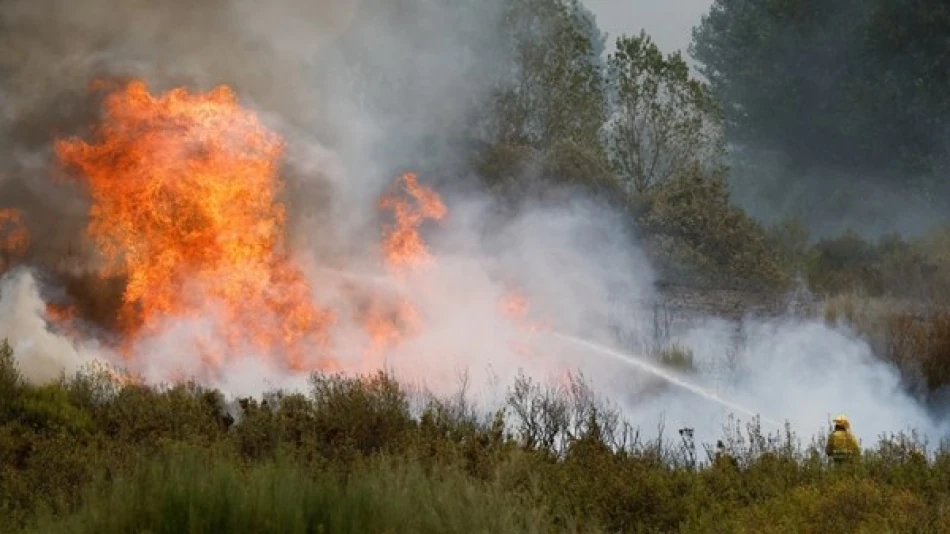
Spain Mobilizes Aid for Victims of Devastating Forest Fires
Spain Declares Disaster Zones After Devastating Wildfire Season Destroys Communities
Spain's government has officially designated multiple regions as disaster zones following a catastrophic wildfire season that saw 113 blazes ravage the country since early August. The declaration unlocks emergency reconstruction funding for affected citizens, marking one of the most significant state responses to climate-driven disasters in recent Spanish history.
Emergency Relief Package Targets Fire and Flood Victims
Prime Minister Pedro Sánchez's administration announced the disaster zone classifications during its first cabinet meeting following the summer recess. The designation extends beyond wildfire damage to include victims of five severe storms that triggered widespread flooding across the country.
Under Spain's Civil Protection Law, the disaster zone status enables residents to access immediate financial assistance for rebuilding homes, businesses, and infrastructure. This streamlined approach reflects lessons learned from previous disaster responses, where bureaucratic delays often hampered recovery efforts.
Ongoing Fire Threat Despite Recent Progress
Interior Minister Fernando Grande-Marlaska reported that 15 major fires remain active despite improved conditions over the recent weekend. The persistent blazes underscore the severity of this year's fire season, which has been fueled by record-breaking temperatures and prolonged drought conditions across the Iberian Peninsula.
Climate Crisis Drives Policy Response
Spain's comprehensive disaster declaration signals a shift toward proactive climate adaptation policies. The country has experienced increasingly severe wildfire seasons as Mediterranean temperatures rise and precipitation patterns become more erratic.
This approach mirrors strategies adopted by other fire-prone nations. California's Camp Fire recovery program and Australia's National Bushfire Recovery Agency both demonstrated how rapid government intervention can accelerate community rebuilding while reducing long-term economic impacts.
Economic Implications for Recovery Efforts
The financial commitment represents a significant fiscal challenge for Spain's government, which is already managing post-pandemic economic pressures. However, economists argue that immediate disaster relief typically generates positive returns by preventing larger-scale economic disruption and population displacement.
Insurance markets are closely watching Spain's response, as comprehensive government backing could influence private sector coverage decisions for high-risk areas. The disaster zone model may become a template for other European nations facing similar climate-driven challenges.
Regional Preparedness Under Scrutiny
The scale of this summer's destruction has renewed debates about Spain's wildfire prevention strategies. Critics point to insufficient forest management and urban planning policies that have increased fire vulnerability in rural communities.
The government's rapid response suggests recognition that climate adaptation requires both immediate relief and long-term structural changes. Future reconstruction efforts will likely incorporate fire-resistant building standards and improved evacuation infrastructure, following models successfully implemented in fire-prone regions of the United States and Australia.
Most Viewed News

 Layla Al Mansoori
Layla Al Mansoori






